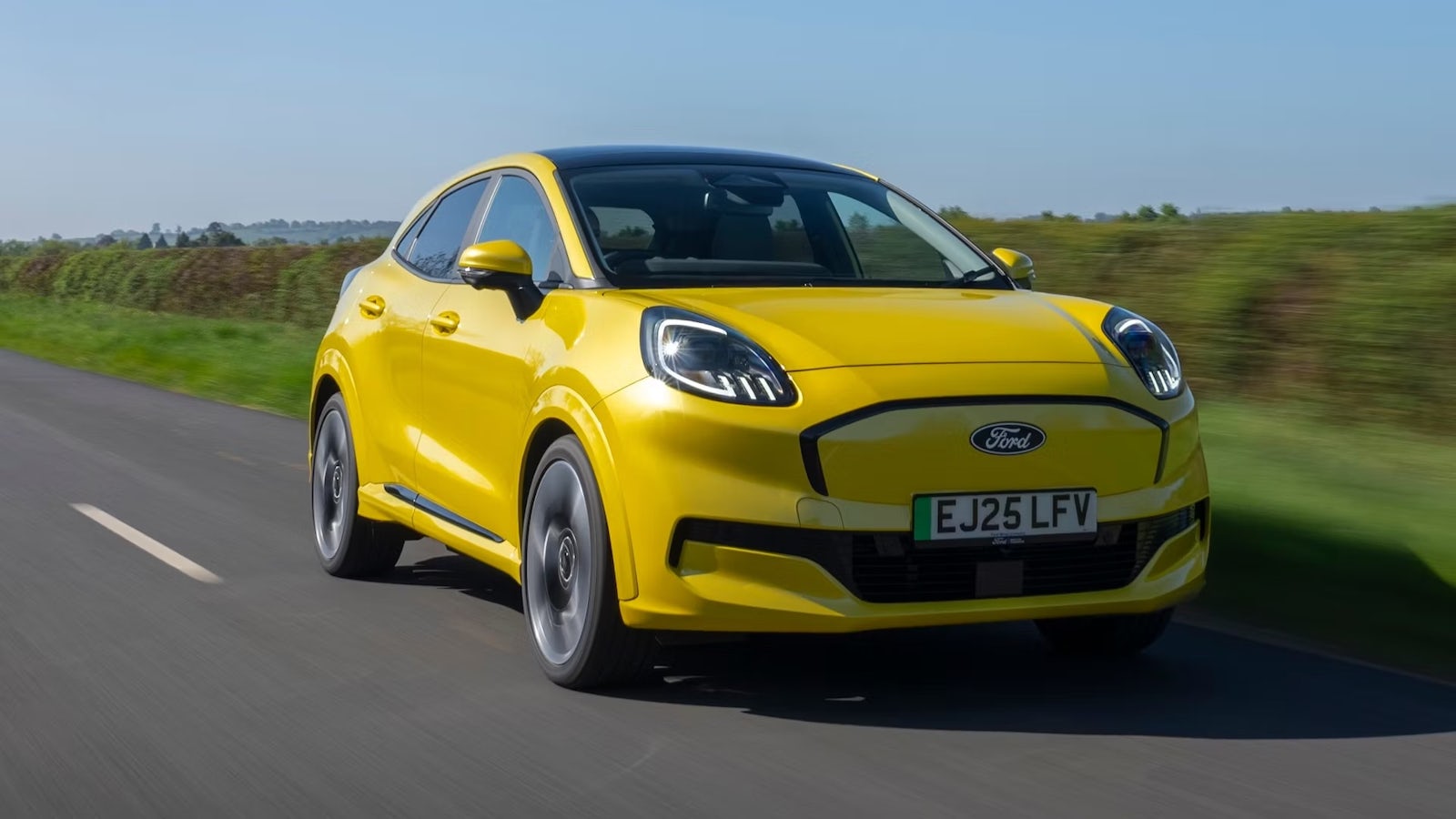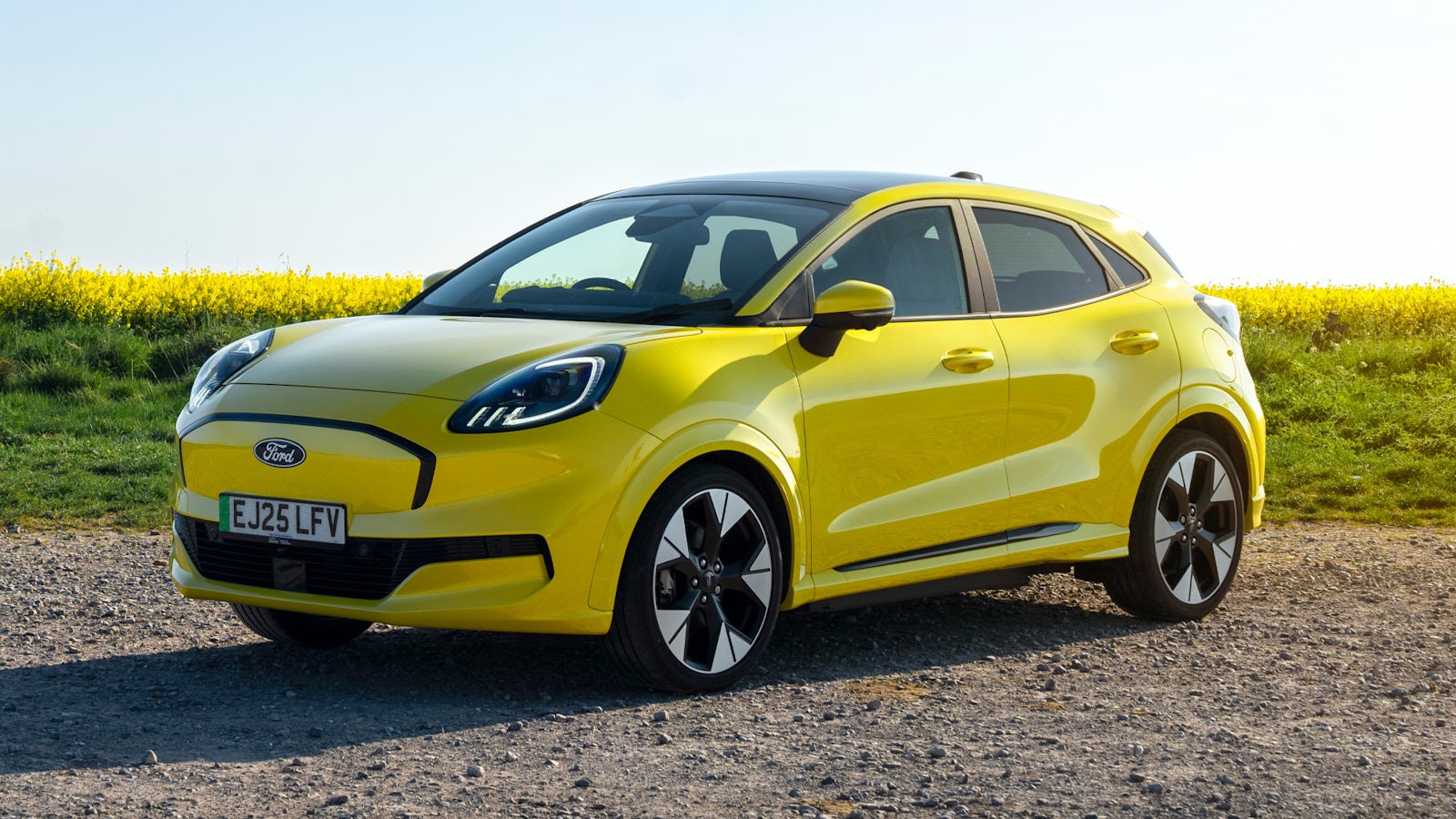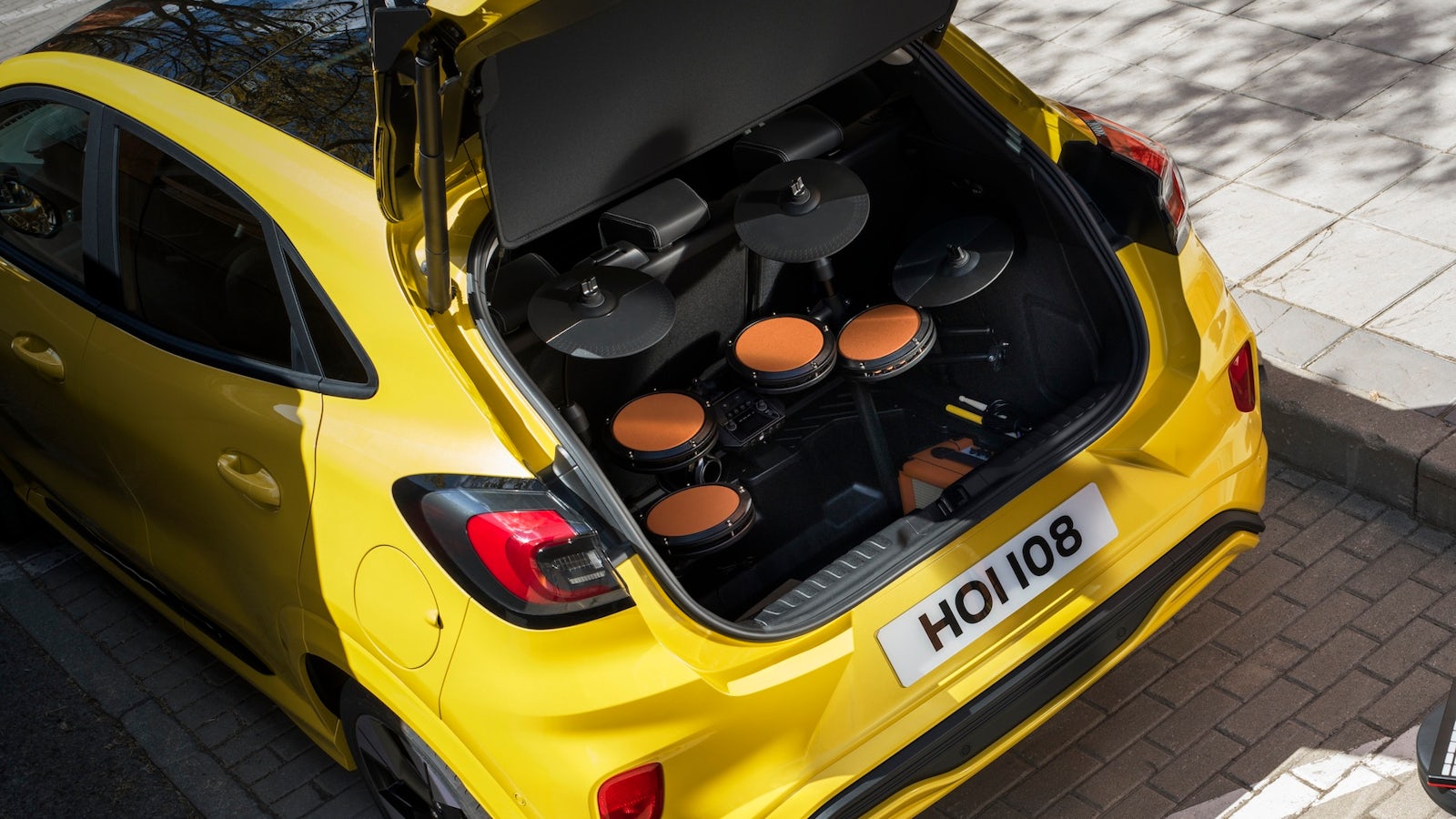Car changing is a big deal
Thanks to the new EV grant, you can now buy the electric Ford Puma Gen-E for the same price as a petrol version. But should you? Let’s compare them to find out.
Electric cars are usually more expensive than the equivalent petrol-powered model. Take the Peugeot 3008 as an example – the petrol version starts from just under £37,000, whereas the E-3008 costs just over £46,000.
But a few manufacturers are now introducing more affordable electric models, some of which match the petrol version on price. Vauxhall was one of the first brands to do this with the new Frontera, and now the new Ford Puma Gen-E costs the same as the petrol Puma.
This is thanks to the new government electric car grant, which sees £3,750 knocked off the price of a new Puma Gen-E. The two cars may look very similar, but which is best for you? We’re going to compare them to help you decide.
Remember, you can buy a brand new or used car right here on Carwow. And you can sell your car, too. We’re here to help you through every step of your car-changing journey.
Ford Puma petrol vs electric: prices and deals
The electric Ford Puma Gen-E starts from £26,245 after the government grant is applied, making it over £9,000 cheaper than a Peugeot E-2008. You can also save an average of £5,700 through Carwow, so make sure to check out the latest deals.

The petrol-powered Puma is actually a few hundred pounds more expensive, with prices starting from £26,580. Average Carwow savings stand at over £2,600 at the time of writing.
If you’d rather lease your new car, the electric Puma is currently available through Carwow Leasey for as little as £130 per month at the time of writing, over 24 months with £1,830 up front.

Surprisingly, the petrol version of the Puma is more than double this to lease. Over 24 months with £2,700 up front it’ll cost you more than £300 per month.
So the days of electric cars being way more expensive than petrol models appear to be over, and with the Puma it’ll mostly come down to which one suits you the best.
Ford Puma petrol vs electric: which will be cheaper to run?
Let’s say you are Britain’s average motorist, driving 7,000 miles per year taking in a mixture of motorways, B-roads and crowded city centres.

The petrol Puma with the 125hp 1.0-litre engine will do 52mpg according to Ford, and this would equate to an annual fuel bill of just over £820. If you average 45mpg, which is more likely in the real world, this goes up to £950.
Calculating the EV’s running costs is slightly more complicated, because it will depend on whether you have home charging. Ford claims that the Gen-E will return 4.7 miles per kWh, and at this rate you’ll use around 1,489kWh of electricity over the year.
If you have charging at home, you should be able to make use of a cheap EV tariff. These cost around 8p per kWh at the moment, which means your 7,000 miles will cost £560.

However, if you don’t have access to a home charger then things get a bit more expensive. The average price of a slow AC public charger is 51p per kWh, which pushes your annual bill up to £760.
And if you have to rely on rapid chargers, the cost of charging becomes astronomical. On average, a rapid charger costs 76p per kWh, which means it’ll cost you £1,132 per year in electricity.
If you’re leasing your car, the savings you make by having the electric version are big enough to offset the higher cost of public charging, but the EV makes the most sense for those who have access to a home charger – both from a cost perspective and for convenience.
If you’re a company car driver, the Gen-E will probably be the better choice. Company car tax (BiK) is calculated based on your car’s emissions, and EVs pay a lot less per year.

The petrol car will cost you between £1,500 and £2,000 per year in BiK depending on which trim you go for, whereas the Gen-E will cost less than £200 per year.
So unless you do all of your charging at public rapid stations, the electric Puma Gen-E will prove cheaper to run in a lot of circumstances. That said, you really need a home charger to make the best of it.
Ford Puma petrol vs electric: key differences
These two cars may seem very similar on the face of it, but there are a few key changes which separate them. For starters, the electric car has a blanked-off grille and it’s available in this bright yellow paint scheme.

Moving inside, the Gen-E has a slightly different centre console. The gear selector has been moved from the middle of the car up to the steering column, freeing up some space for additional storage.
Both cars do suffer with a slightly low-rent cabin. The materials used feel a bit cheap, and a Peugeot 2008 feels more posh. Taller adults may also struggle to get comfortable in the rear seats.
But this brings us onto the Puma’s party piece – the massive boot. The petrol version has 456 litres of space, more than 20 litres more than a Peugeot 2008, and you get a handy storage area under the floor which is really deep.

The Gen-E’s boot is even bigger at 523 litres, which is mostly thanks to some space freed up between the rear wheels. With the boot floor flipped up, you can fit two sets of golf clubs upright in the boot. There’s also a small storage area under the bonnet for your charging cables.
Ford Puma petrol vs electric: final verdict
If you have access to home charging, the electric Ford Puma Gen-E is a no-brainer. If you go for that cheap leasing deal then you’ll save over £5,000 over two years when you combine the cheaper lease cost with fuel savings.
It even makes sense if you use public chargers, although this is much less convenient than just plugging in at home.
Before you commit to buying, take a moment to think about what type of driving you do most. If you’re regularly slogging up and down the motorway, the Gen-E might not be the best option because it’s much less efficient at motorway speeds, and the range plummets to around 140 miles.
But if you spend more time driving around town, or you don’t do much more than 100 miles a day and have access to home charging, then the Ford Puma Gen-E wins hands down.
Car change? Carwow!
Looking for a new set of wheels? With Carwow you can sell your car quickly and for a fair price – as well as find great offers on your next one. Whether you’re looking to buy a car brand new, are after something used or you want to explore car leasing options, Carwow is your one stop shop for new car deals.
Click here to follow us on WhatsApp, where you can keep up-to-date with all the latest news, reviews, advice guides and videos.
